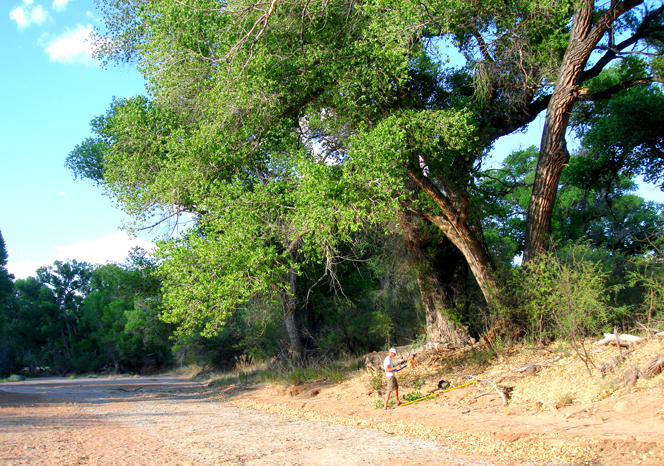The National Science Foundation has awarded Northern Arizona University a five-year, $2.5 million grant to examine how future climate change and invasive species will affect Fremont cottonwood trees, a “foundation species” of the Southwest’s rapidly vanishing stream-side habitats.
In the southwestern United States, stream-side habitat, which reduces erosion and supports endangered species such as the Southwest willow flycatcher, has been reduced by more than 97 percent.
The study of foundation species is important because they disproportionately influence a much larger community of understory plants, insects, microbes, birds and mammals. By focusing on foundation species, scientists can more quickly understand how a community of hundreds of species would react to disturbances such as climate change.
“This research has the potential to transform human understanding of how foundation species respond to environmental change, specifically climate change and invasive species,” said associate professor Gery Allan, director of NAU’s Environmental Genetics and Genomics Laboratory and the project’s principal investigator. “More importantly, our findings can be used to identify the genetic lines that can best cope with environmental change and develop more effective conservation strategies.”
This study, in particular, will examine how climate change and invasive species influence the natural transfer of genes among Fremont cottonwood populations, or landscape genetic connectivity. The transfer of genetic material among populations increases the genetic variability of a species through time, thereby improving its likelihood of survival.
The research team will use the Southwest Experimental Garden Array, a new genetics-based research platform that allows scientists to quantify the ecological and evolutionary responses of species to changing climate conditions. With the resulting data, genetics-based models will be used to explain how the genetic connectivity of foundation species, climate change and exotic species interact to affect hundreds of dependent species.



